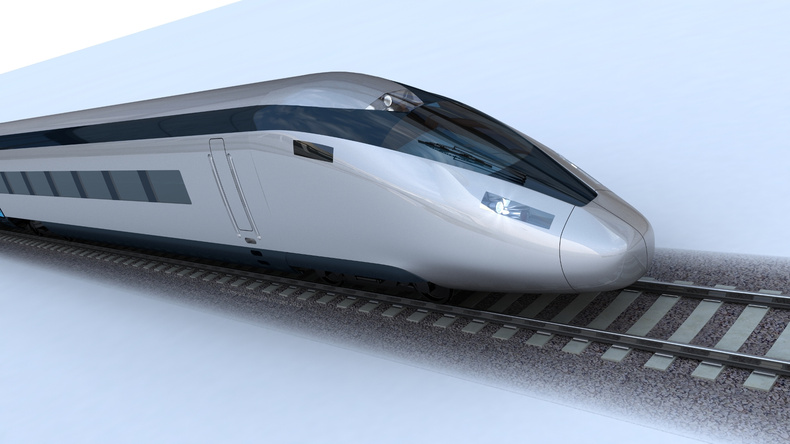HS2 launches first giant tunnelling machine

HS2 has today launched the first of 10 giant tunnelling machines that will dig 64 miles of tunnels between London and the West Midlands.
An enormous 2,000 tonne tunnel boring machine (TBM) 'Florence ' is launching from HS2 's South Portal site next to the M25 in Buckinghamshire, at an event attended by HS2 Minister Andrew Stephenson and HS2 Ltd CEO Mark Thurston.
Named after nursing pioneer Florence Nightingale - a name suggested by local children due to her residence at nearby Claydon House in Bucks, and chosen in a public vote - the TBM will dig the first of a pair of 10 mile long tunnels under the Chiltern hills and help to safeguard the woodland and wildlife habitats above ground.
A second machine 'Cecilia ' will launch next month to excavate the second tunnel at the South Portal site.
Transport Secretary Grant Shapps said: “The launch today of the first giant tunnelling machine on HS2 is not only a landmark moment for the project, but the ground-breaking evidence that shows our commitment to levelling up transport links across the UK, supporting thousands of jobs and hundreds of apprenticeships in the process. ”
Mark Thurston said: “The launch of our first tunnelling machine is a major moment of progress for the HS2 project as we work to deliver a high-speed railway that will offer low-carbon alternatives for long distance journeys across the UK.
“With more than 16,000 jobs already supported by the project and thousands of companies big and small benefiting from contracts, HS2 is providing a major boost to the economy in these difficult times.
“The start of tunnelling is a moment of genuine excitement for everyone involved, and I hope the entire country will get behind this truly transformative project. ”
The first two TBMs will be operated by HS2 's main works contractor, Align - a joint venture formed of three international infrastructure companies, Bouygues Travaux Publics, Sir Robert McAlpine, and VolkerFitzpatrick.
Designed specifically for the mix of chalk and flints under the Chilterns, the two identical TBMs will dig separate tunnels for north and southbound trains.
Each machine operates as a self-contained underground factory - digging the tunnel, lining it with concrete wall segments and grouting them into place at a speed of around 15 meters a day.
Each tunnel will require 56,000 precision engineered, fibre-reinforced segments - which will all be made on site.
A crew of 17 people will operate each TBM, working in shifts to keep the machines running 24/7. They will be supported by over 100 people on the surface, managing the logistics and maintaining the smooth progress of the tunnelling operation.
Chalk excavated from the tunnels will be used for landscaping at the south portal site once construction is complete, creating wildlife-rich chalk grassland habitats across 127 hectares of the southern Chiltern hills.
Built by manufacturer Herrenknecht at its factory in south-west Germany, the two 170m long machines were transported to the UK in more than 300 separate shipments last year, before being reassembled, tested and commissioned by an expert team of tunnelling engineers at the Chiltern tunnel south portal site, near the M25 to the north-west of London.
The names of the two TBMs were suggested by students at Meadow High School in Hillingdon and The Chalfonts Community College, Buckinghamshire, which are close to the tunnel launch site.
They were inspired by Florence Nightingale, the founder of modern medicine, and pioneering astronomer and astrophysicist, Cecilia Payne-Gaposchkin.
Raj Kandola, head of policy at Greater Birmingham Chambers of Commerce, said: "A key part of the Government 's levelling up agenda rests upon bringing prosperity to all for corners of the country, and in such testing times, we need a project the scale and size of HS2 to help rebalance the economy in a sustainable fashion and create thousands of much needed jobs across the country.
"This is key a milestone in the lifetime of HS2 and as the work progresses, we look forward to working with local businesses to help them access the multitude of supply chain opportunities that will be on offer."
